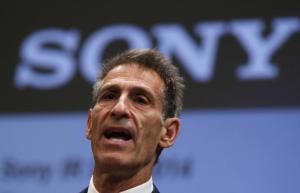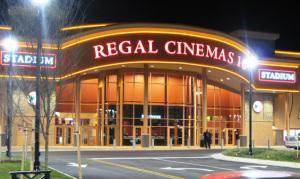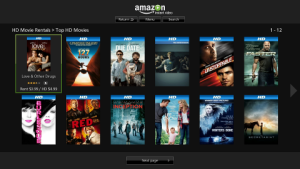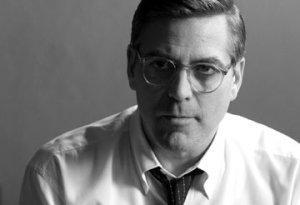You know how when a parent says “I’m not mad; I’m just disappointed” that’s code for “Super mad!” That’s how President Barack Obama sounded earlier today when he discussed Sony Picture’s controversial choice to cancel any theatrical or home video release of The Interview for the foreseeable future, admitting in his White House press conference:
“Sony is a corporation; it suffered significant damage. There were threats against its employees. I am sympathetic to the concerns that they faced. Having said all that, yes, I think they made a mistake. [If they’d] spoken to me first. I would have told them do not get into a pattern in which you are intimidated by these kinds of criminal attacks.”
Of course, at this point President Obama pretty much had to address this topic because the FBI has concluded North Korea was definitely behind Guardians of Peace, the hacking collective that first humiliated Sony by releasing embarrassing emails and then straight up threatened anyone who dared play The Interview. So, this is officially a state-sponsored cyber attack on a United States business (technically a subsidiary of a Japanese company), and the scary part is that the FBI hacking experts believe there’s very little to stop this type of attack from happening again to any other business or even the U.S. government. Basically, Sony’s security could have been better, but these hackers are damn good. For now, Obama, like so many others, is worried what this means for the future of creative expression:
“We cannot have a society in which a dictator someplace can start imposing censorship here in the United States. Because if someone is able to intimidate folks out of releasing a satirical movie, imagine what they start doing when they see a documentary they don’t like, or news reports they don’t like. Or even worse, imagine if producers and distributors and others start engaging in self-censorship because they don’t want to offend the sensibilities of somebody whose sensibilities probably need to be offended.”
So true. These are sad, scary times, and even if you had no interest in seeing The Interview the idea of North Korea bullying us into not watching The Interview or any other dang movie we wish seems fundamentally un-American. USA! USA! USA! We never give in to terrorists!

Sony’s Michael Lynton
But the way Sony tells it they’re not really the ones who gave in to the terrorists. It was the dang theaters who caved! Sony Pictures’ CEO Michael Lynton explained as much in a CNN interview:
“[Sony] experienced the worst cyberattack in American history and persevered for three and a half weeks under enormous stress and enormous difficulty. The movie theaters then came to us one by one over the course of a very short time. We were very surprised by it. They announced that they would not carry the movie. At that point in time, we had no alternative to not proceed with a theatrical release on the 25th of December. …We have not caved. We have not given in. We have persevered.”
He’s not totally wrong. According to the National Association of Theater Owners, as of 2012 (the most recent data point available on their site) there were 5,317 theaters comprising 39,056 movie screens in North America. By the time Sony canceled The Interview Wednesday afternoon, a third of those theaters (1,756) and over half of all potential movie screens (21,544) were officially off-limits after 6 of the top 10 leading theater chains in North America (Regal, AMC, Cinemark, Carmike, Cineplex, Bow Tie) had decided against showing The Interview. The first chain to officially announce as much was Carmike Cinemas, which kicked off a domino effect, but The Daily Beast is hearing that Regal Cinemas and AMC were actually the first two to decide against showing the movie. Those are the two biggest theater chains in North America, and once they caved everyone behind them had to follow their lead, largely for legal liability reasons, i.e., if something bad happened and a theater chain was sued it could be argued that their competition had clearly taken action to protect its customers.
 Sure, the Department of Homeland Security said there was absolutely no evidence of any kind of terrorist attack being planned against North American theaters, but Guardians of Peace had kind of become like the real world, hacker version of Heath Ledger’s The Joker in The Dark Knight, constantly one step ahead of everyone and keeping us unhinged and on our toes. Plus, the theaters’ lawyers probably saw more risk than reward and urged caution, ultimately at the expense of patriotism.
Sure, the Department of Homeland Security said there was absolutely no evidence of any kind of terrorist attack being planned against North American theaters, but Guardians of Peace had kind of become like the real world, hacker version of Heath Ledger’s The Joker in The Dark Knight, constantly one step ahead of everyone and keeping us unhinged and on our toes. Plus, the theaters’ lawyers probably saw more risk than reward and urged caution, ultimately at the expense of patriotism.

How I picture Guardians of Peace
The theaters are mad at Sony for forcing them to make that decision, reasoning that the studio knew full well that movie theaters are ill-equipped to handle terrorist threats. If Sony wanted them to show the film they needed to somehow provide extra security. Sony is mad at the theaters for abandoning them, and annoyed that Obama is calling them out for not asking for his help when in fact they did apparently seek out guidance from the White House. According to Lynton, “We definitely spoke to a senior advisors or a senior advisor in the White House to discuss the situation. The White House was certainly aware of the situation.”
It’s debatable what exactly President Obama could have done for them. He can’t force theaters to show a movie, and if the FBI experts are to be believed there’s apparently little chance that they could have stopped any additional data leaks from Guardians of Peace before Christmas. That all being said, there were still technically enough theaters and movie screens left to give The Interview a limited theatrical release. Then again, it’s also very possible that even more theater chains than we actually know had already told Sony they would not carry The Interview, and even if not many more could have done so if Sony had not decided to cancel The Interview.
Sony was simply in a shitty position with no good solution. You want Sony to be brave and stand up to terrorists, but they’ve been abandoned by everyone in Hollywood, cut off from the leading theater chains, and now thrown under the bus by the President of the United States. It sets a horrible precedent, puts the future of mainstream satirical comedy into doubt, and undoubtedly emboldens terrorists, but Sony suffered the worst corporate hack in American history and the rest of the world mostly responded by laughing at them. By the time they chose to cancel The Interview I don’t know that they had a better option.
And they still don’t. According to Lynton, Sony’s exploring other distribution methods, but everyone is running away from Guardians of Peace scared:
“As it stands right now, while there have been a number of suggestions that we go out there and deliver this movie digitally or through VOD, there has not been one major VOD — video-on-demand distributor — one major e-commerce site that has stepped forward and said they are willing to distribute this movie for us. Again, we don’t have that direct interface with the American public, so we need to go through an intermediary to do that.”

When if ever will The Interview pop up in a list like this?
BitTorrent and Gawker have some suggestions for how Sony might release The Interview for free, but Sony is still in the business of making money and The Interview did cost $44 million to make. A lot of us, including Chris Rock on The Daily Show last night, have cynically joked that The Interview will probably come out on video 3 months from now or get leaked online at some point. However, now that Sony gave in to Guardians of Peace it remains forever possible that another round of hacks will pop up to greet any further release plans for The Interview. It’s perfectly possible that the only people who will ever see this movie are the critics who attended a LA press screening a couple of weeks ago, and a lot of them didn’t even like it.
This is about way more than The Interview now, and it’s more important what Washington does about this going forward than whether or not Sony finds a home for its beleaguered movie. At his press conference today, Obama promised there will be some kind of response against North Korea, but he stopped short of providing any specifics. According to the New York Times, that might be because there’s not much Washington can do. Beyond leveling even more sanctions against North Korea, “Going forward, Washington could seek an international panel to investigate the attack and demand condemnation by the United Nations Security Council. The United States also needs to work with Japan and South Korea, two other regular targets of North Korean hacking, to improve their defenses and develop common responses like imposing sanctions. The international community needs to speed up work on norms on what constitutes a cyberattack and what the response should be.”
However, if Obama can’t get China, North Korea’s main ally in the region, to play nice on this then the new era of terrorism may play itself out in the cyber realm.
 As for what this means for the future of film, well say goodbye to setting anything in North Korea ever again, at least while Kim Jong Un is still around. That much is pretty obvious, right? George Clooney had some more serious insight on this topic, telling Deadline:
As for what this means for the future of film, well say goodbye to setting anything in North Korea ever again, at least while Kim Jong Un is still around. That much is pretty obvious, right? George Clooney had some more serious insight on this topic, telling Deadline:
“What’s going to happen is, you’re going to have trouble finding distribution. In general, when you’re doing films like that, the ones that are critical, those aren’t going to be studio films anyway. Most of the movies that got us in trouble, we started out by raising the money independently. But to distribute, you’ve got to go to a studio, because they’re the ones that distribute movies. The truth is, you’re going to have a much harder time finding distribution now. And that’s a chilling effect.”
Clooney went on to claim that along with his producing partner Grant Heslov he is actively working with Sony Pictures Co-President Amy Pascal to find a way to release The Interview because it is crucial at this point to confirm to the rest of the world that we are not going to be told that we can’t see something, especially not by Kim Jong Un.
But, for the most part, we have no idea what’s going to happen next, be it with U.S. international relations with Korea or Sony’s distribution plans or the future of stories with a controversial subject matter, because all of this is unprecedented.
If this was all playing out in an 80s movie it would close out with the clear hero defeating the clear villain, a fist-pump-in-the-air rock song playing the story out and over the closing credits. So, I’m going to close with one of those, Pat Benatar’s “Invincible” which most people know as the song that plays at the end of The Legend of Billie Jean. Benatar argues, “We can’t afford to be innocent/Stand up and face the enemy/It’s a do or die situation/We will be invincible.” Oh, if only it were that easy (and cut and dry).
About these ads
